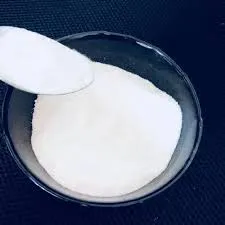
Nov . 14, 2024 10:40 Back to list
hydroxyethylcellulose uses
Hydroxyethyl Cellulose Versatile Uses and Applications
Hydroxyethyl cellulose (HEC) is a non-ionic, water-soluble polymer derived from cellulose. It has gained significant attention in various industries due to its unique properties, including excellent thickening, emulsifying, and film-forming capabilities. This article explores the diverse applications of hydroxyethyl cellulose in different fields.
Hydroxyethyl Cellulose Versatile Uses and Applications
In the construction sector, hydroxyethyl cellulose plays a crucial role as a thickener and water-retaining agent in various construction materials such as cement, plaster, and adhesives. By improving the workability and fluidity of these materials, HEC ensures better application and adhesion. Its ability to retain moisture is particularly beneficial, as it helps to prolong the curing time, thereby enhancing the overall strength and durability of the construction products. This property is also valuable in the formulation of tile adhesives and grouts, where it aids in maintaining optimal conditions for bonding.
hydroxyethylcellulose uses

The pharmaceutical industry also benefits from the properties of hydroxyethyl cellulose. HEC is often used as a binder and thickener in tablets and other dosage forms, ensuring uniform distribution of active ingredients and enhancing the overall stability of the formulation. Additionally, HEC is utilized in the preparation of gels and topical formulations due to its excellent moisture retention and soothing properties, making it ideal for products aimed at treating skin conditions.
In the field of food processing, hydroxyethyl cellulose is recognized for its ability to improve the texture and stability of various food products. It is commonly used as a thickening agent in sauces, dressings, and ice creams, where it helps maintain consistency and prevent separation. Furthermore, HEC can act as a fat replacer, contributing to a reduced calorie content in low-fat food formulations while still providing the desired mouthfeel.
Another significant application of hydroxyethyl cellulose is in the agriculture sector, where it is used in the formulation of herbicides and pesticides. HEC enhances the adhesion of these products to plant surfaces, ensuring better coverage and effectiveness. Additionally, its water-retaining properties can assist in improving soil moisture, ultimately leading to better crop yields.
In summary, hydroxyethyl cellulose is a multifunctional polymer with diverse applications across numerous industries, including cosmetics, construction, pharmaceuticals, food processing, and agriculture. Its unique properties of thickening, emulsifying, and moisture retention make it an invaluable ingredient in product formulations. As industries continue to evolve and seek innovative solutions, the demand for hydroxyethyl cellulose is likely to grow, paving the way for new and exciting applications. Whether enhancing personal care products or improving construction materials, HEC stands as a testament to the importance of functional ingredients in modern formulations.
-
Versatile Hpmc Uses in Different Industries
NewsJun.19,2025
-
Redispersible Powder's Role in Enhancing Durability of Construction Products
NewsJun.19,2025
-
Hydroxyethyl Cellulose Applications Driving Green Industrial Processes
NewsJun.19,2025
-
Exploring Different Redispersible Polymer Powder
NewsJun.19,2025
-
Choosing the Right Mortar Bonding Agent
NewsJun.19,2025
-
Applications and Significance of China Hpmc in Modern Industries
NewsJun.19,2025







